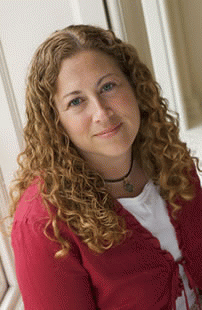| Back OpEd News | |||||||
|
Original Content at https://www.opednews.com/articles/Jodi-Picoult-s-House-Rules-by-Anne-Grant-101229-421.html (Note: You can view every article as one long page if you sign up as an Advocate Member, or higher). |
|||||||
December 29, 2010
Jodi Picoult's House Rules
By Anne Grant
An autistic teen demands stringent rules of his family and becomes fascinated with forensic science shortly before he is accused of murder. Picoult's 17th novel delivers well-defined characters, intriguing monologues, and vivid portrayals of autistic behavior. Courtroom scenes show the importance of now-mandated accommodations for people with disabilities.
::::::::
In her 17th novel, Jodi Picoult holds a sleuth's magnifying glass to the inner lives of a mother, her two sons, a police detective, a lawyer and an autistic disorder known as Asperger's that demands rigorous compliance with rules. Some "house rules" are common: 1. Clean up your own messes, 2. Tell the truth, and 3. Take care of your brother. He's the only one you've got.
Other rules tend toward the bizarre. Eighteen-year-old Jacob's family must stick to one assigned color in food and clothing for each day of the week. Break these rules and he may launch into wailing, flapping of hands, and other behaviors called "stimming." That term was new to me, but well known to parents who post their children's repetitive, compulsive behaviors on YouTube to enlighten the rest of us about the torments endured by them and their loved ones. Picoult has performed a similar service with insight and compassion.
She has produced this winning formula before, grabbing us from the start: "Everywhere I look there are signs of a struggle." A family organizes its life around an older child's affliction and ends up in a courtroom that is hopelessly ill-equipped to grasp or even inquire about the truth.
The story unfolds through intriguing monologues by a handful of well-defined characters. "Dealing with an autistic meltdown is like dealing with a tornado," observes Jacob's mother, Emma. "Once you are close enough to see it coming, there's nothing to do but weather the storm." Hours later, she crawls out of Jacob's closet, bruised from soothing her distraught man-child to sleep in a mountain of clothes. His younger brother, Theo, leaves his cereal bowl on the counter--a silent reproach for the trip to a Chinese restaurant she had promised.
Picoult evokes empathy without mawkishness for each of her characters. We understand why Theo is developing bizarre habits of his own. When the story becomes a murder mystery, Jacob's fascination with forensic science and his genius for clues contrasts with the failure of professionals to care or to ask the most basic questions about what happened. Their wrong-headed assumptions rule the day -- just like in many courtrooms.
What goes on in the brains of people with Asperger's? Why do parents of autistic children distrust vaccines? How are courtrooms gaining civility under the Americans with Disabilities Act? Picoult breathes humanity into somber issues and delivers unexpected healing and hope.
Anne Grant writes reviews in addition to true stories about children abused by lawyers, psychologists and judges in family court.Â
Authors Bio:
In addition to her book reviews and general writing, much of Anne Grant's research focuses on legal abuse in family courts and child protective services that place traumatized children at greater risk. She writes several blogs, including those that focus on custody courts:
http://CustodyScam.blogspot.com
http://LittleHostages.blogspot.com
http://TrophyChild.blogspot.com
http://WritingTruthToPower.blogspot.com
She contributed to the book, "Domestic Violence, Abuse, and Child Custody: Legal Strategies and Policy Issues," edited by Mo Therese Hannah, Ph.D. and Barry Goldstein, J.D. (Civic Research Institute, 2010).
